
Do you have what you need to make your garden grow?


Garden Center
Store Hours
Mon-Sat:
6:00am - 10:00pm
Sun:
8:00am - 8:00pm
Curbside:
09:00am - 6:00pm
Location
Popular at Your Garden Center
Trending Garden Supplies in May
Trending Live Plants
Garden Project Calculators
;Resize=(703,395.44))
Grass Seed Calculator
When you're ready to seed your lawn, our calculator helps you estimate the amount of grass seed you'll need to get the job done.
;Resize=(703,395.44))
Mulch Calculator
Enter your preferred material, the square footage and mulch depth of the coverage space for accurate results.
;Resize=(703,395.44))
Fencing Calculator
We'll calculate the amount of fencing you should purchase based on your property needs.
Shop Outdoor and Garden Brands
Frequently Asked Questions About Gardening
What's my planting zone?
Check the USDA growing zone map, as planting zones have shifted over the years. Zones with higher numbers can plant earlier in the year. Increase your odds of successful gardening by choosing plants that are meant for your zone.
What does direct sow mean?
If the soil isn't cold and frozen, consider planting your fruit, flower, or vegetable seeds directly into your garden. This is called the "direct sow" method. The time to plant will be after the threat of frost is gone for the season, as seedlings and sprouts can't weather those conditions. You can also start your seeds indoors if you'd like. Consult your seed packet for how and when to sow seeds.
Do you carry organic seeds and plants?
Yes, we've got a variety of organic options, including organic fruit seeds and veggie seeds, as well as organic herb and flower seeds that are subject to availability. We carry the organic soil to plant them in as well as the organic fertilizer to feed your plants.
Should I harden off my seedlings before planting them outside?
Yes, if you raised plants indoors from seeds in your own plant nursery, harden them before you transplant them. Hardening is the process of getting them used to outdoor life, spring rains, and temperature swings. It slows their growth until they're strong and ready to take off during a spring warm front. Hardening also makes your plants more resilient to a sudden cold snap.
Can I strengthen my seedlings before planting them outdoors?
Get your sprouts used to breezy spring days and storms with a fan and keep fungus from growing in damp conditions. Set up an oscillating floor fan on low to mimic the wind. Just the gentlest breeze for several hours a day will do the trick — no need to prep them for a hurricane. They'll gain strength even though you shouldn't see them moving. If you don't set up a fan, your seedlings may be more sensitive to strong winds. Try to plant between storms.
What are seed tapes?
If you want more guidance in planting or are dealing with extremely tiny seeds, consider seed tapes. They're biodegradable pieces of paper with tiny seeds affixed at regular intervals. Just bury the tape and water as directed. If all goes well, you'll have perfectly spaced sprouts pop up soon.
Garden Project Ideas
The Home Depot Garden Center at E Spartanburg
Set Up For Springtime
It's time to start thinking of spring. Clean the shed and sweep out the gazebo to prepare for sprouts poking up, fragrant breezes, and warmer temperatures. Planting seeds indoors with grow lights means you'll be ready to transplant young veggie plants and spring flowers when the ground thaws and the frosts are through. You might even want to plant seeds directly into the earth. What better way to start than by exploring your favorite local plant nursery?
Plant Hardiness Zones Explained
The first thing to learn when planting spring flowers, vegetables, and other seeds is your planting zone. Every location in the U.S. and its territories is sorted into blocks by climate. Find your zone on the USDA planting zone map and learn when to plant seeds.
For example, you could plant bell pepper seedlings outdoors in mid-March in Zone 10, but not until the end of May in Zone 4. The plants that'll thrive in your area are in your zone — plus all the zones numbered less than that. In other words, a Zone 5 garden can support plants listed as Zones 1–5. The timeframe to direct sow outdoors in your garden is often around a month later than the indoor start date. Be sure to read your seed packet for details. If you start plants later than recommended, it's not ideal, but it should even out as time passes.
Gardening in Your Growing Zone
Virginia, West Virginia, Kentucky, and Tennessee are in Zones 6–8. Cruciferous veggies and certain herbs are ready to grow when you're ready to plant. This includes kale, broccoli, and cabbage. Greens like spinach and artichokes, early-blooming annuals like marigolds, and fragrant herbs, including parsley, basil, and oregano, also don't mind an early beginning. Even in the highest peaks of West Virginia in Zone 5b, traditional garden vegetables like peppers of all kinds, cucumbers, and tomatoes are fine with an early spring or late winter start indoors under the grow lights.
Look up the date of your last predicted frost, then count backward 6 to 8 weeks. That's when you should sow your seeds indoors. The idea is to have strong baby plants that are ready for transplant at the same time the ground is warm enough. Do your best and enjoy the process — watching your plants grow, bloom, and put out tiny veggies that'll grow to harvest size is part of the fun.
Start Seeds Indoors
Grow your garden from seeds by starting them indoors in your own plant nursery. We've got all the seed starter supplies you'll need. Make sure you have a warm and sunny spot that gets at least 12 hours of light. Then you have everything you need to try growing seeds. Early spring light isn't usually strong enough, so we recommend extra lighting to keep those seeds warm enough to germinate.
Measure your finger to use it as a ruler. In general, you'll plant 3–5 seeds, then press them into the soil to the depth you need with your finger. Mark where you planted the seeds with a plant tag or toothpick. That way, you'll know where your seeds should pop up, and you can be sure they're not weeds. Otherwise, it'll be a surprise when the sprouts push out of the soil.
Sprouts
Prepare your seed sprouts for outdoor life while they're still indoors. These micro-seedlings are fragile — only an inch or so high, with the tiniest seedling leaf or two — but they're resilient. Seedlings don't get all this pampering in nature, so they can handle more than you think. However, don't go overboard, as your sprouts are still babies. You can even use an oscillating floor fan on low to mimic the wind and strengthen their stems.
Harden Your Seedlings
Be sure to harden off your seedlings once they're a few inches tall. This is a process of gradually introducing them to the outdoors, making them stronger in the long run. Hardening means you're less likely to lose your growing garden during a sudden cold snap.
Transplant Young Plants Into Their New Homes
Place your transplants in the ground, then give them a generous drink of water — without drowning it. Blanket the surrounding area with mulch, marking where the plant is with a tag or stick so you can easily find it among the grass clippings, old leaves, or straw. If your yard is regularly visited by rabbits, squirrels, deer, or chipmunks, consider putting up chicken wire or other protective measures so your plants and veggies are less likely to get eaten before they thrive.
Protect Your Garden With Mulch
Finish your flower bed with compost and mulch. Mulch controls weeds and keeps your soil from drying out. Compost enriches the soil so your garden can grow even better. It may help foster stronger and larger plants that bear more flowers and fruit. Mulch and compost can be purchased in-store or created at home. The next time you're looking for "mulch near me," stop by the Garden Center to get the right amount.
Greet the Spring
Don't miss a minute of growing season. Prepare to fertilize your lawn, plan your garden and landscaping, and browse The Home Depot nursery to find inspiration on what to plant when the weather warms. For those without lawns, consider adding an outdoor rug or artificial grass to your outdoor space. Shop for the soil, seeds, and fertilizer you need in the aisles of your E Spartanburg Garden Center, online, or on our mobile app. Let's get growing together.
Nearby Stores
Find Another Store
121 Dorman Center Drive
Spartanburg, SC 29301
6.95 mi
Mon-Sat: 6:00am - 10:00pm
Sun: 8:00am - 8:00pm
1385 W Wade Hampton Blvd
Greer, SC 29650
22.38 mi
Mon-Sat: 6:00am - 10:00pm
Sun: 8:00am - 8:00pm
79 Woodruff Industrial Ln
Greenville, SC 29607
26.67 mi
Mon-Sat: 6:00am - 10:00pm
Sun: 8:00am - 8:00pm
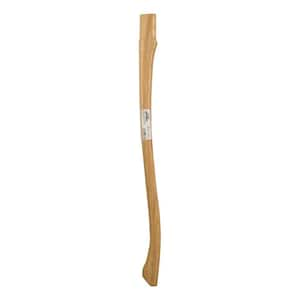
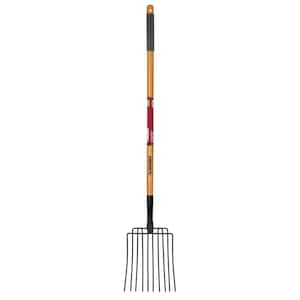
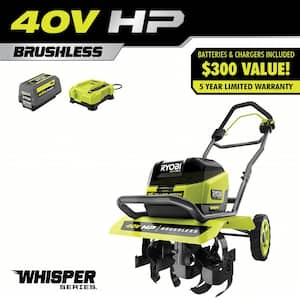
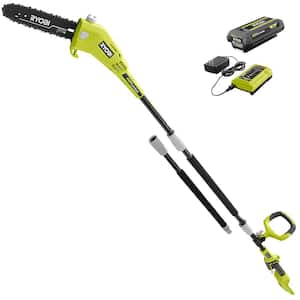
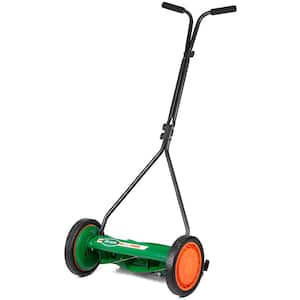
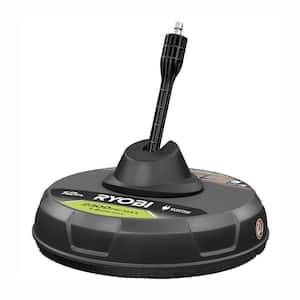
)
)
/17_514245_S_012_Product%20Image%20(square).jpg?im=Resize=(300,300))
;Resize=(300,300))
)
)
)
)
)
/2023_P2_Rain_Barrels_Product%20Image%20(square).jpg?im=Resize=(300,300))
)
;Resize=(300,300))
;Resize=(300,300))
;Resize=(300,300))
/12_SOIL_B_0420_Social%20media%20(square).jpg?im=Resize=(300,300))
;Resize=(300,300))
)
)
;Resize=(300,300))
;Resize=(300,300))
;Resize=(300,300))
;Resize=(300,300))
)
)
;Resize=(300,300))
;Resize=(300,300))
;Resize=(300,300))
;Resize=(300,300))
;Resize=(300,300))
)
/18Patio_Camden_Seagrass_5pcSeating_Planters_302468736_DTL3_L_Social%20media%20(square).jpg?im=Resize=(300,300))
;Resize=(300,300))
;Resize=(300,300))
;Resize=(300,300))
)
;Resize=(300,300))
;Resize=(300,300))
)
;Resize=(300,300))
)
.jpeg?im=Crop,rect=(363.69230769230774,1.2307692307692308,958.7692307692308,958.7692307692308);Resize=(300,300))
;Resize=(300,300))
)
;Resize=(300,300))
;Resize=(300,300))
)
;Resize=(300,300))
)
)
;Resize=(300,300))
;Resize=(300,300))
)
)
;Resize=(300,300))
)
;Resize=(300,300))
;Resize=(300,300))
)
)
;Resize=(300,300))
)
)
/Capello_Spring_Mum_10in_Social%20media%20(square).jpg?im=Resize=(300,300))
;Resize=(300,300))
)
)
;Resize=(300,300))
)
)
;Resize=(300,300))
)
)
;Resize=(300,300))
;Resize=(300,300))











































